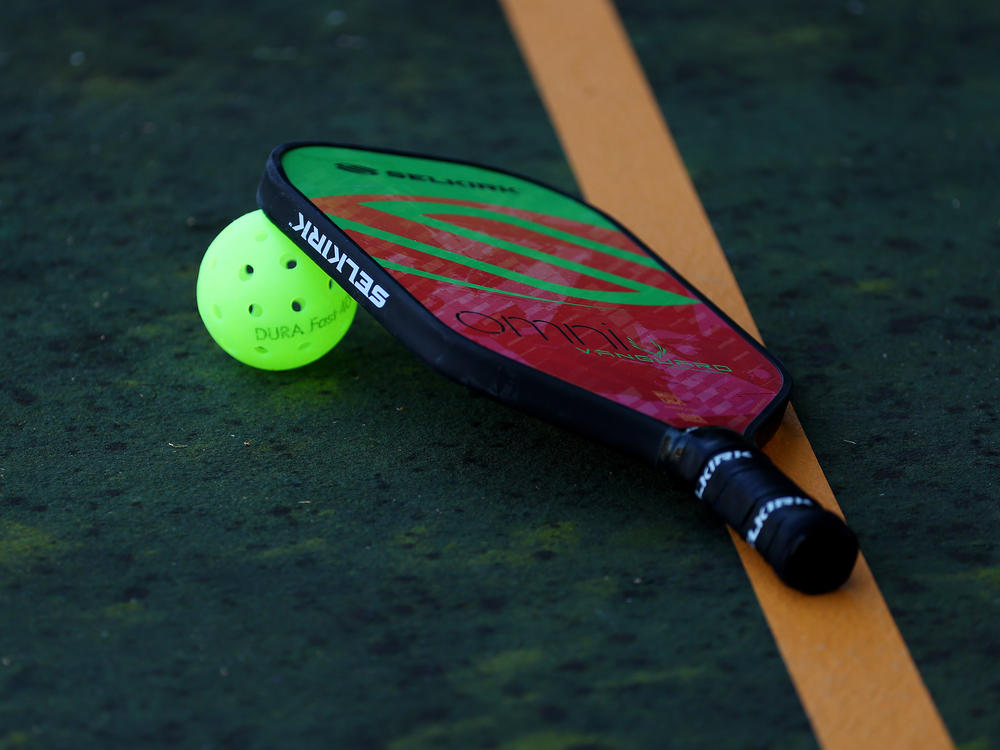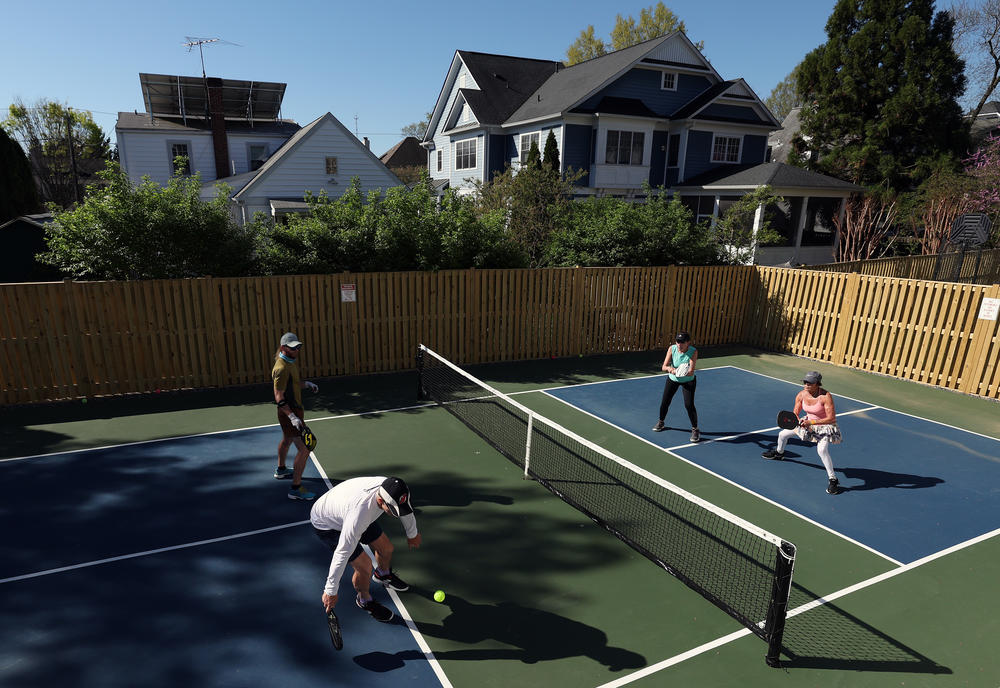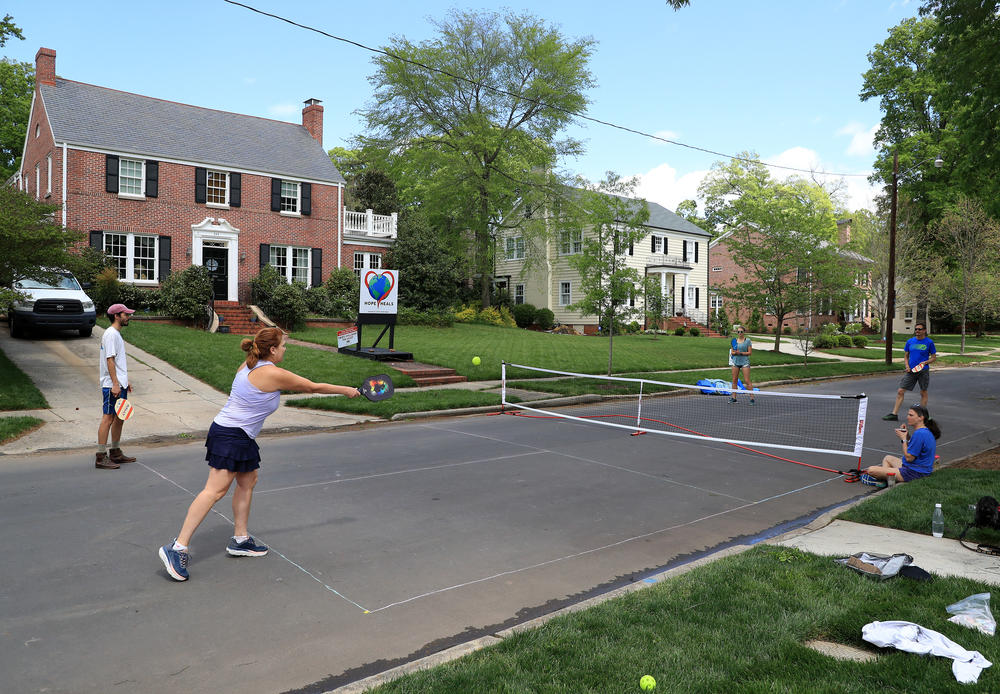Section Branding
Header Content
Pickleball has a noise problem. He's trying to fix it
Primary Content
Pickleball is America's fastest growing sport, but it has a noise problem. One man is on a mission to fix that.
Who is he? Bob Unetich.
- Before he was a pickleball lover, Unetich was an engineer. And when it comes to the noise problem, he gets it.
- "You can't take pop, pop, pop for 12 hours a day every day and remain sane," he told NPR.
- He has founded Pickleball Sound Mitigation to provide consulting and advice on keeping the noise down.
What's the big deal?
- The explosive growth of the game — played on a small court with a paddle and a plastic ball — saw participation nearly double in 2022, increasing by 85.7% year-over-year, and by 158.6% over three years, according to the Sports & Fitness Industry Association.
- And with that explosion came the lawsuits. Journalist Mark Dent first reported on Unetich's efforts and pickleball's noise problem for The Hustle after he saw these lawsuits in local publications.
- "Over the last several months, I just kept seeing them kind of pop up. And all these lawsuits, of course, were largely over pickleball being too noisy," he told NPR.
What are people saying?
Here's Dent telling NPR why he started looking into this:
Pickleball is, like, the worst of both worlds. You know, it's loud, and it's high-pitched ... So I'm like, how can pickleball be less noisy? Is anybody working on it?
It turns out, Unetich was. Here's what he told NPR he has found out:
Pickleball sound exists right in that most sensitive range. An interesting thing I learned along the way is that garbage truck backup beepers are right in the same pitch of pickleball. Why did they pick that sound for beepers? Because it's the most annoying frequency.
And how Unetich and a couple of other engineers tested different paddles for sound levels:
We built a tall chamber. We found dropping a ball — if there was no wind, no air — enabled you to get a very predictable speed. And so a ball hitting one paddle will give you a different sound than a ball hitting a different paddle.
So, what now?
- Unetich's research has found that different materials in the equipment, as well as sound barriers, can help. Still, the simplest solution is just to build courts far enough away from people.
- "It's kind of like having to invest more money on the front end and planning to avoid this potential major disruption and lawsuits — conceivably at least — on the back end," Dent said.
- Unetich worries the noise problem will slow the growth of his favorite sport. He's hoping his research and consultancy will help so he can keep playing.
Learn more:
- America's fastest-growing sport is a cross of tennis, ping-pong and badminton
- Pickleball for all: The cross-generational power of play
- Tennis stars get lots of hate online. The French Open gave them AI 'bodyguards'
Copyright 2023 NPR. To see more, visit https://www.npr.org.



